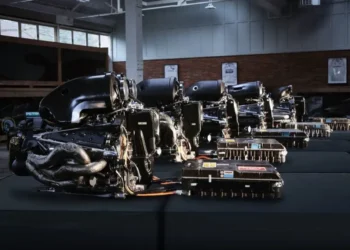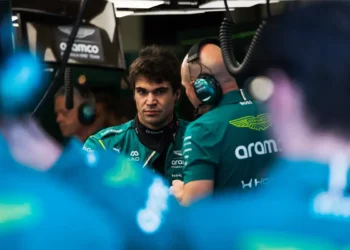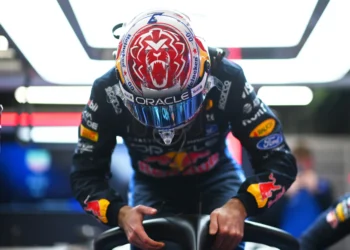Sauber Motorsport boss Mattia Binotto has made a sobering admission regarding Audi’s highly anticipated entry into Formula 1 in 2026. As Audi gears up to join the pinnacle of motorsport with a clean slate under new technical regulations, the German automaker is preparing to face a significant challenge: closing the performance gap with well-established F1 power unit suppliers.
Audi’s arrival will coincide with the introduction of fresh technical regulations, which the company hopes will reset the playing field and breathe new life into Sauber’s fortunes. The Hinwil-based team has been languishing at the bottom of the 2024 F1 standings with zero points, but Audi’s involvement aims to turn the tide. However, Binotto, who joined Audi in August to steer the team’s F1 project, remains pragmatic about the difficulties ahead.
“Engine Development Progressing, But Challenges Await”
In a recent update, Binotto offered insight into the progress of Audi’s power unit development, which is being run at the company’s Neuburg facility in Germany. While the powertrain program is on schedule and running tests on the dyno, Binotto cautioned that Audi would face an inevitable learning curve compared to the more established power unit suppliers in Formula 1.
“I’ve been visiting Neuberg in the last days and weeks,” Binotto revealed. “The engine is progressing well, running on the dyno, some long distances so far already performed.”
However, he quickly acknowledged that Audi will be at a disadvantage compared to experienced competitors like Ferrari, Mercedes, and Red Bull, all of whom have had years of accumulated knowledge in F1 engine development. This, Binotto suggested, will mean Audi will need time to catch up.
“We are competing with other organisations where manufacturers are settled down,” he said. “Certainly, all the experience is pretty important and valid. While I think the organisation there [at Audi] is great, the facilities are great, the programs are going ahead, still, there is a learning curve, which needs to be done.”
“Expecting a Gap to Recover”
Audi’s decision to enter F1 as a full engine manufacturer, rather than continuing Sauber’s current customer engine relationship, is seen as a bold move. However, this strategy could contribute to the initial gap the team must recover, according to Binotto.
“I’m expecting initially to have a gap to recover. How big it will be, I think that you can never know,” Binotto conceded.
Despite the daunting challenge, Binotto remains optimistic that Audi has ample time to make meaningful progress before its competitive debut in 2026. He stressed that the extent of Audi’s performance deficit will only become clear once the car hits the track, but there’s still more than a year of development ahead to minimize that gap.
“We’ve got more than a year from now to then,” Binotto said. “There is an intense program on the dynos in development, and it will be our task to make sure that we can enforce it, speeding up as much as we can, but trying to be as competitive as we can be at the start of 2026.”
Audi’s Ambitious Challenge
While Audi’s entrance into F1 marks an exciting moment for the sport, Binotto’s words serve as a reminder that the journey will be far from straightforward. With power unit development being the backbone of any successful F1 operation, Audi’s progress between now and 2026 will be critical in determining whether it can make an immediate impact or spend its first few seasons playing catch-up.
As the 2026 season looms, Audi and Sauber’s preparations will be under intense scrutiny as they attempt to compete with the might of F1’s established giants. The stakes are high, and the clock is ticking.










